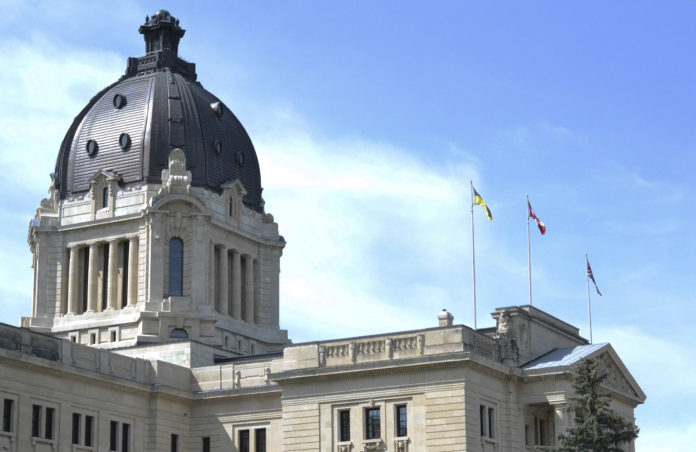The province announced proposed changes to unpaid leave policies Tuesday.
The proposed changes to the Saskatchewan Employment Act are designed to protect jobs during a public health emergency.
“We want to thank workers across Saskatchewan for everything they do,” Labour Relations and Workplace Safety Minister Don Morgan said in a press release. “No one should lose their job for continuing to prioritize health and safety during this public health emergency.”
The amendments would remove the requirement of 13 consecutive weeks of employment prior to accessing sick leave, remove the provision requiring a doctor’s note and introduce a new, unpaid public health emergency leave that can be accessed where the WHO or province’s chief medical health officer has determined there is a public emergency or if the chief medical health officer has issued an order to reduce the spread of a disease where it is believed there is sufficient risk of harm.
The amendments would be retroactive to March 6.
“We also want to thank the members of the Opposition for their assistance in moving this act forward in a timely way so that employees have the peace of mind needed during public health emergencies,” Morgan said.
The province also announced it would only release a partial budget, with expenses but not revenue.
The partial budget and unpaid leave measures address some of the concerns raised by the opposition over the past few days.
Tuesday morning, the NDP released an action plan it would like to see the province adapt to address COVID-19.
“As things change so quickly, we need to have a government that’s responding quickly as well,” NDP leader Ryan Meili said in a press release. “The time to act is now.”
The NDP called for events with more than 50 people to be banned, a suspension of the legislative session, a financial aid package and the postponement of the budget.
That financial aid, Meili said, should include:
Measures to support low and middle-income families, including support for people who can’t access childcare as a result of school closures, to keep people whole and money circulating in the local economy;
Wage subsidies for Saskatchewan businesses to keep workers employed, with focus on small and medium-sized companies and response to regional and industry-specific needs;
Injection of the necessary dollars into our healthcare system, proportionate to the challenge before us;
Guaranteed sick leave supports for workers needing to self-isolate;
Utility and rent guarantees so that no one goes without power, heat, phone or a safe place to stay;
Tax changes to reduce the financial pressure businesses are facing in the short term.
Meili also urged the province to begin immediate work on a post-pandemic economic stimulus plan, including a major infrastructure investment ensuring projects are built by Saskatchewan workers and companies.
“Let’s invest in Saskatchewan people today,” Meili said. “If we act quickly on the measures for social isolation, the measures for readiness in our health system, and a financial aid package that really meets the needs of Saskatchewan people today, we can get ahead of the curve. We can reduce the negative health and economic impacts on the population. And we can make Saskatchewan what it should be: a good-news story of a province that tackled this the right way and took care of people first.”
The provincial Green Party also issued a press release Tuesday, calling for a universal basic income during the pandemic. They called on the province to work with the federal government on the measure.
They asked that the province’s low-income tax credit be used to start providing all households earning less than $32,643 with an immediate minimum monthly payment, with partial credit for some households with higher income.


